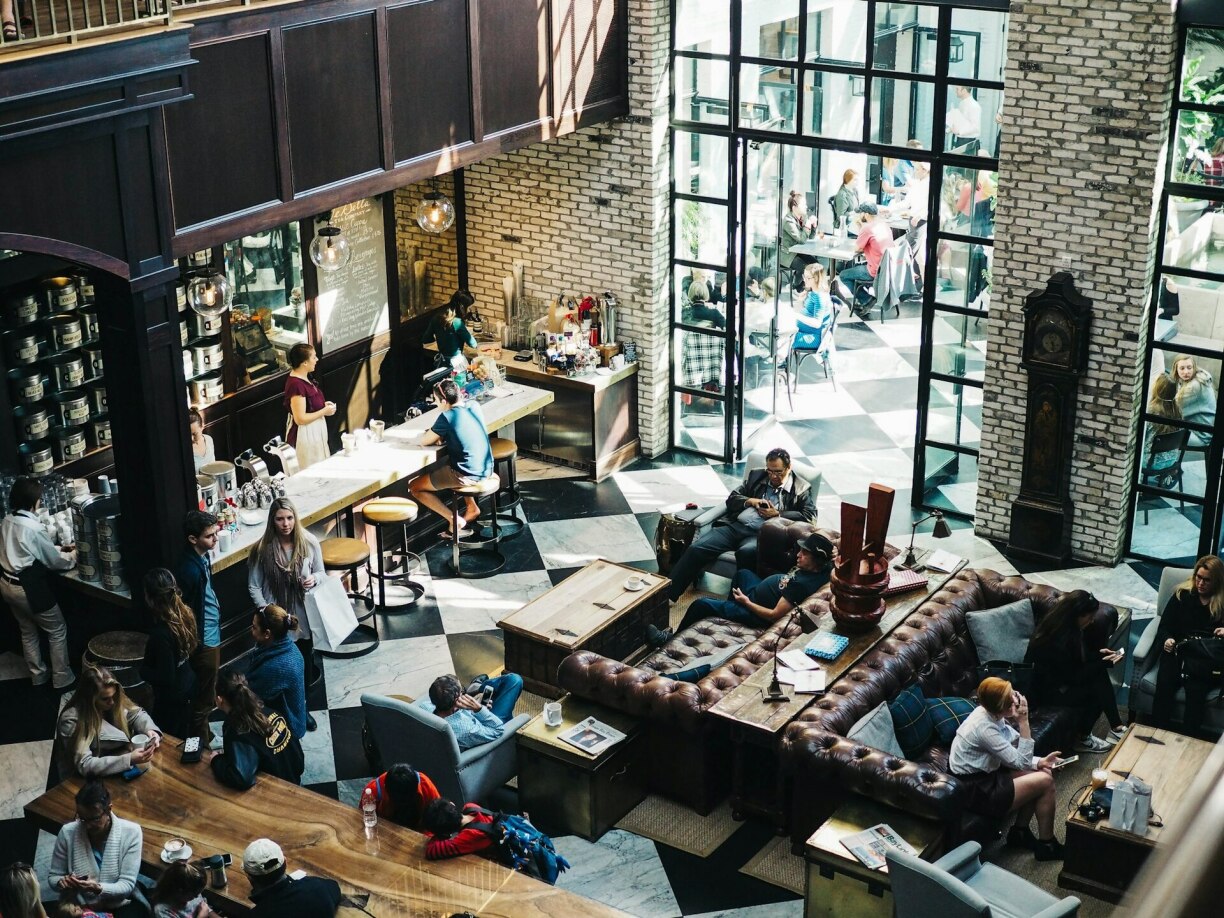
The Retail Report, presented by Lex Delles, Minister of the Economy, analyses the retail, Horeca, and food trade sector, spanning from the year 2019 onwards. The report provides a comprehensive overview of the retail trade, including its current state, its geographical distribution, the development of individual branches, and offers, on a broader level, new insights on its development trends.
Delles highlighted that, overall, there has been a slight improvement over the past four years. The retail space, in square meters, has risen from 1.67 square meters per inhabitant to 1.68, with the total retail space now standing at 1.11 million square meters. The data indicates a parallel growth trajectory between retail space (+5.2%) and the population (+5.5%) since 2019.
The latest figures also suggest a balanced supply-demand dynamic. In the year-on-year comparison (2022 to 2023), both traditional retail and the Horeca sector exhibited resilience, showing no significant changes in the number of businesses.
This Retail Report provides an overview of sectors that have seen either a decline or growth over the past four years. It reveals a reduction of 73 clothing stores, marking a decline of -9.9%, and a reduction of 9 butchers, reflecting a -4.3% decrease. Cafes and bars have faced the most substantial decline in recent years, with 63 establishments closing their doors, reflecting an 8% decline. Since 2019, there has indeed been a slight dip in retail activity in the country’s city centers, a trend that is not exclusive to Luxembourg but rather reflects a broader European trend.
The DIY sector has seen notable growth, witnessing the addition of 38 stores. This marks a substantial increase of 22.5% with the sector now covering a total area of 13,000 square meters. Additionally, there has been an increasing demand for garden centers and sports stores. Restaurants saw a modest increase with 18 new establishments (1.5%), while fast-food restaurants experienced a significant surge, with 79 additional establishments, reflecting a remarkable growth of 28.9%.
Director of the Luxembourg Confederation Tom Baumert highlighted robust growth in all areas of the food sector with the retail space is expanding at a rate surpassing population growth. Specialized stores, including tea or cheese shops, are thriving and since 2019, there has been an impressive increase of 78.9%, equating to 60 more stores. Organic shops have grown by 8 (27.6%), and stores offering international products have increased by 15 (19.2%). Moreover, there are 19 additional supermarkets, especially from discount supermarket chains, reflecting a growth of 4.9%.
Carlo Thelen, Director General of the Chamber of Commerce, noted that in recent years numerous businesses have grappled with profitability challenges. For instance, many cafes have adapted by incorporating snacks and small dishes to offset these difficulties. Similarly, several shops have transitioned to offering a greater selection of organic products.
Thelen further points to the prevailing pessimism among merchants, surpassing levels noted in the industry and construction sectors, as highlighted in the Economy Barometer for the 2nd semester of 2023. Should confidence continue to diminish, this heightened pessimism may raise concerns about potential hesitancy in making investments, extending beyond digitization to more critical domains such as that of energy transition.
During the recent press conference, localyze.lu was once again highlighted as a valuable tool. This platform provides municipalities with the opportunity to optimise their businesses, with 135 of them already registered. Individuals from the commerce, crafts, and Horeca sectors have actively sought advice through this platform. Notably, the site is now accessible to individuals from the service sector, to institutions, and to the press.
Both the “Retail Report” and Localyze.lu serve as key pillars within the Pakt Pro Commerce, a political initiative launched in April 2016. This initiative is designed to invigorate and foster the growth of local commerce through a series of practical measures. These tools consequently play a pivotal role as strategic instruments guiding the policy to be implemented in support of local businesses and commerce.